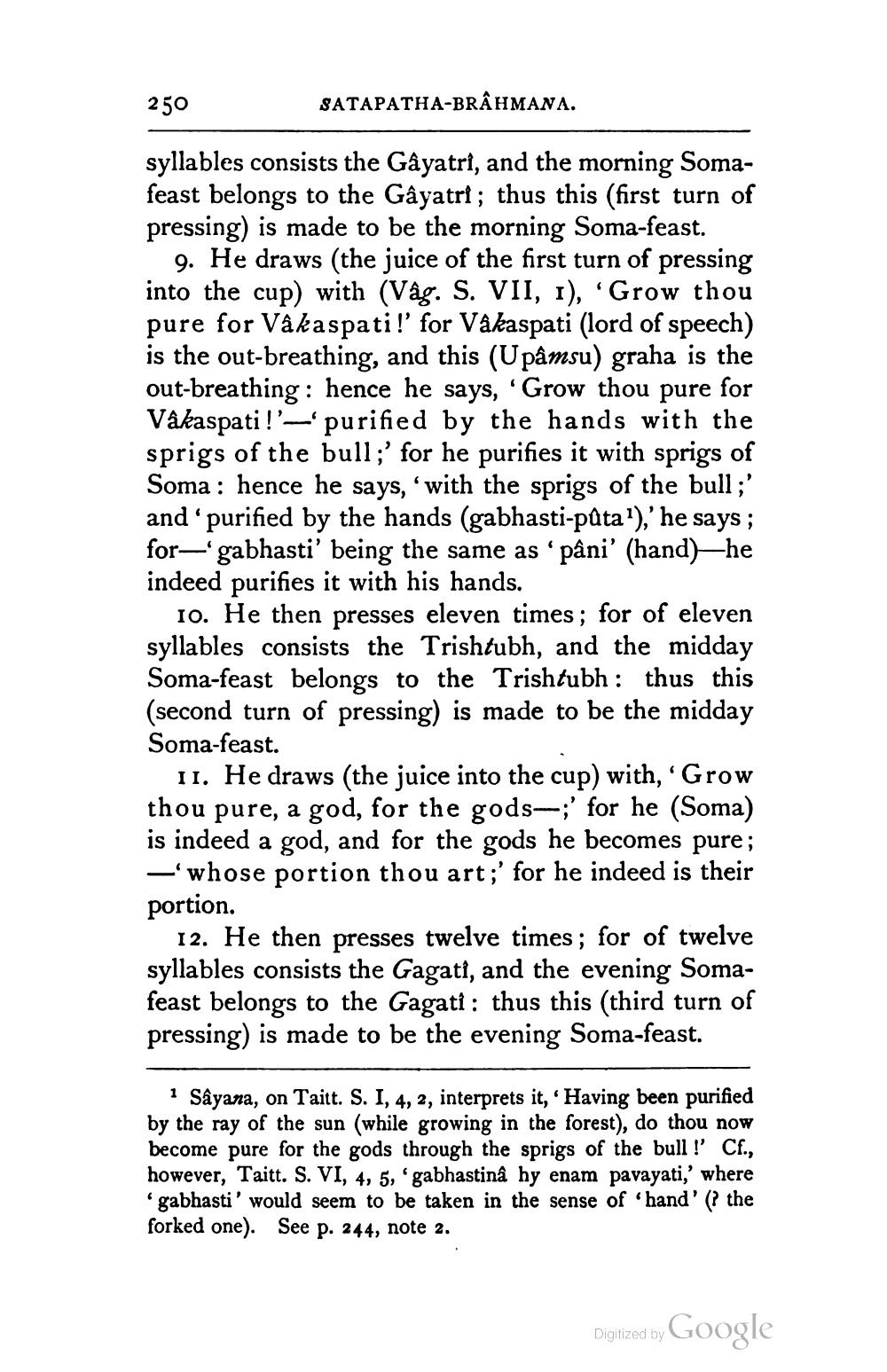________________
250
SATAPATHA-BRAHMANA.
syllables consists the Gayatri, and the morning Somafeast belongs to the Gâyatri ; thus this (first turn of pressing) is made to be the morning Soma-feast.
9. He draws (the juice of the first turn of pressing into the cup) with (Vâg. S. VII, I), 'Grow thou pure for Vâkaspati!' for Vakaspati (lord of speech) is the out-breathing, and this (Upâmsu) graha is the out-breathing: hence he says, 'Grow thou pure for Vâkaspati!'-'purified by the hands with the sprigs of the bull;' for he purifies it with sprigs of Soma: hence he says, 'with the sprigs of the bull;' and purified by the hands (gabhasti-pata?),' he says; for—' gabhasti' being the same as 'pâni' (hand)he indeed purifies it with his hands.
10. He then presses eleven times; for of eleven syllables consists the Trishtubh, and the midday Soma-feast belongs to the Trishtubh: thus this (second turn of pressing) is made to be the midday Soma-feast.
11. He draws (the juice into the cup) with, Grow thou pure, a god, for the gods-;' for he (Soma) is indeed a god, and for the gods he becomes pure; —'whose portion thou art;' for he indeed is their portion.
12. He then presses twelve times; for of twelve syllables consists the Gagati, and the evening Somafeast belongs to the Gagati : thus this (third turn of pressing) is made to be the evening Soma-feast.
Sâyana, on Taitt. S. I, 4, 2, interprets it, ' Having been purified by the ray of the sun (while growing in the forest), do thou now become pure for the gods through the sprigs of the bull !' Cf., however, Taitt. S. VI, 4, 5, gabhastinâ hy enam pavayati,' where
gabhasti' would seem to be taken in the sense of 'hand' (? the forked one). See p. 244, note 2.
Digitized by Google




